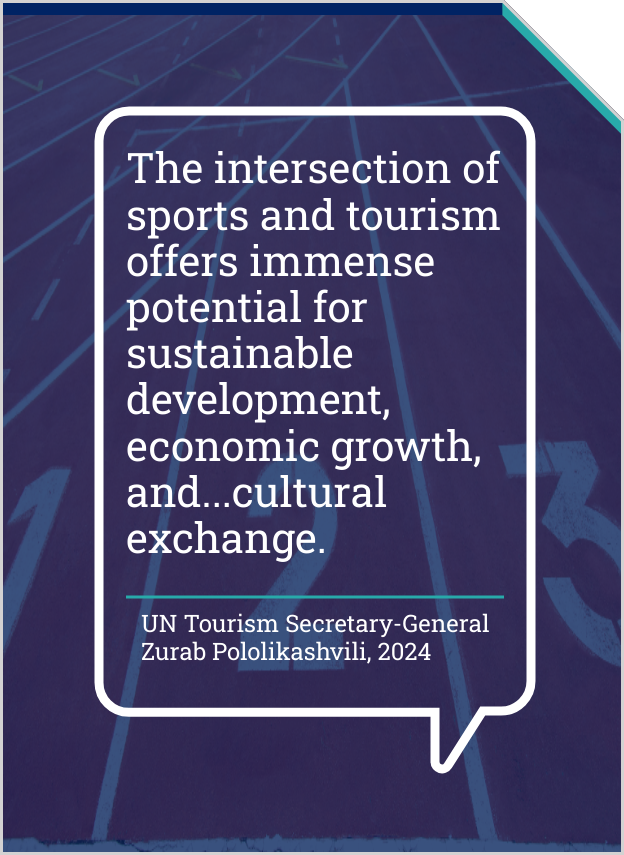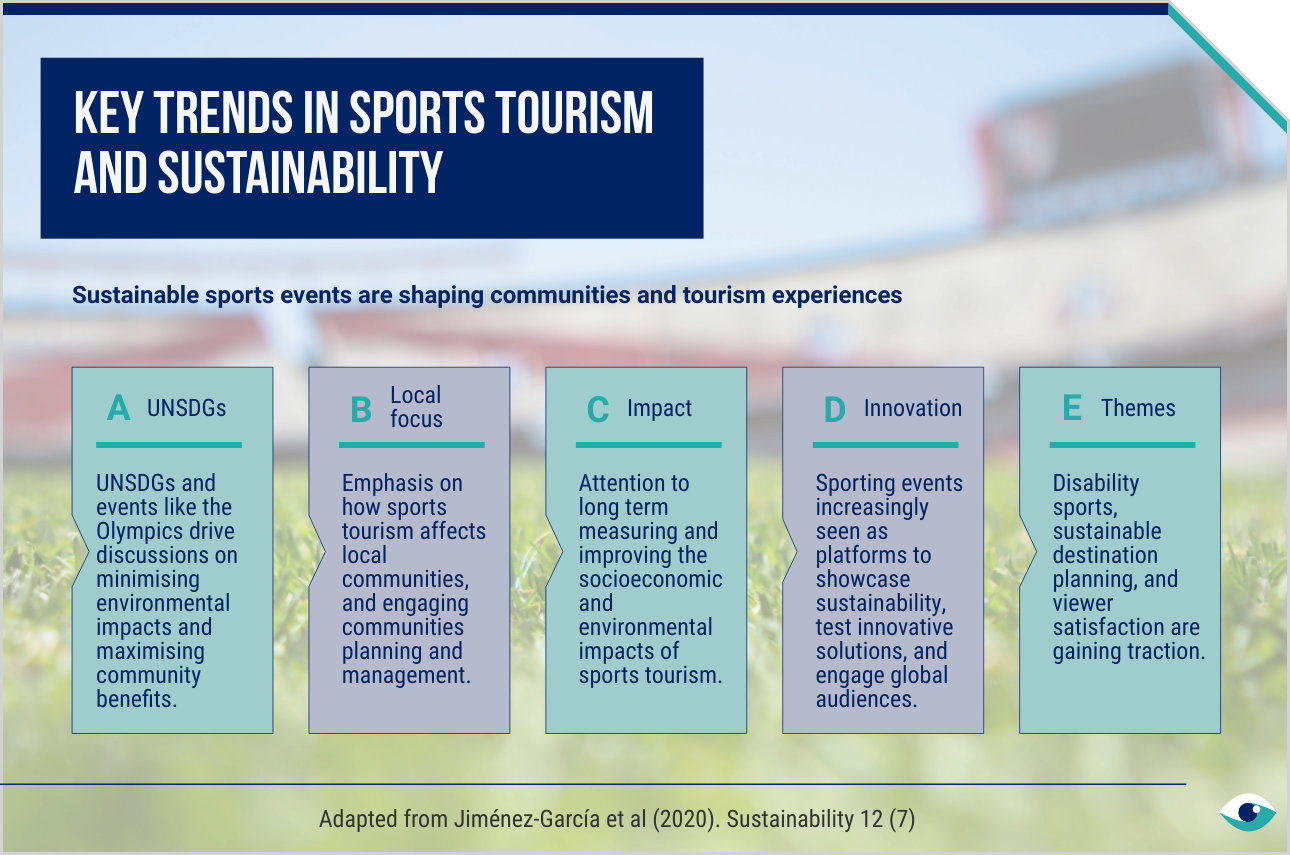Worth USD 609 billion and expanding at 17.5% annually, global sports tourism’s economic and social benefits also, however, raise sustainability concerns, such as high emissions, resource-intensive infrastructure and insufficient focus on equity in environmental practices. Frameworks like the Global Reporting Initiative (GRI 300+) and SASB industry standards, help embed sustainability into sports tourism practices. In this, multiparty collaboration can leverage the rapid growth of sports tourism, while promoting sustainable initiatives from minimising waste to eco-friendly transportation and integrating local cultural elements into tourism experiences.

Sports tourism now a catalyst of sustainable development
The socio-economic benefits of a burgeoning global sports tourism sector can be maximised with multiparty focus on sustainability
Policy
Hotels & lodging
AT A GLANCE
Sports tourism’s worldwide growth unleashes global socio-economic opportunities.
These benefits, supporting UN Sustainable Development Goals (UNSDG's), need policy backing and collaboration to align sports tourism with sustainability goals and practices.
Together, event organisers, the tourism sector and local communities, offer enriched and sustainable tourist experiences.

Sustainable operations
As highlighted by UN Tourism and motor racing’s FIA, sports tourism must adopt new operational practices, including energy-efficient event management and low-emission technologies. Event organisers such as Asdeporte reduce the environmental footprint of marathons and triathlons through sustainable transport and waste-reduction. Phnom Penh’s USD160 million Morodok Techo National Stadium demonstrates how eco-friendly infrastructure investments can align tourism growth with sustainability goals.
Economic inclusion
Sports tourism fosters economic inclusion, by generating jobs for underrepresented groups and spawning small businesses like equipment rental and transportation services.Targeted training and microfinance to women, increases their participation as entrepreneurs and athletes, empowering them to create local economic opportunities. In Iran, sports tourism development has been instrumental in creating seasonal, part-time and full-time jobs, demonstrating its capacity to bolster economic resilience.

Enriching experiences
Major sporting events enhance visitor engagement, with tourists spending up to 50% more than average, especially when local traditions are integrated into the experience. Incorporating cultural elements into sporting events strengthens their appeal, by making them more authentic and memorable for visitors. Responding to the growing demand for meaningful and personalised travel experiences, TravelOsports and Melsh Sports Tours now combine sporting participation with exposure to local traditions.
UNSDGs and policy backing
Sports tourism supports UNSDGs 1, 3 and 8, fostering both opportunity and wellbeing, while expanding to a USD 1.8 trillion industry, projected to grow at 17.5% annually by 2030. With a supportive policy context such as Indonesia’s, this potential can be maximised. Here, national sports initiatives integrate tourism into broader sustainability frameworks, while decentralised governance empowers local governments to align sports tourism with local and regional sustainability objectives.
FURTHER READING
- Tourism development and women’s employment (Tourism Economics)
- South Africa’s path to resilience (Development Southern Africa)
- A new model of sports tourism in Indonesia (Frontiers in Sports and Active Living)
